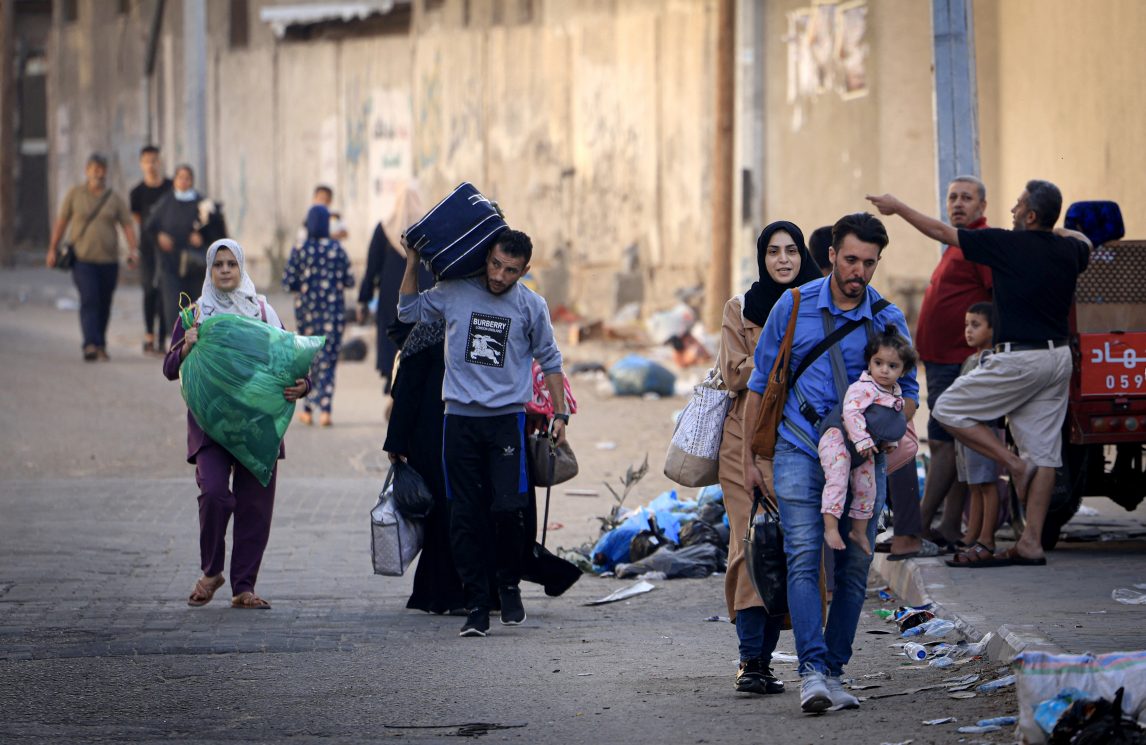“These are dramatic times” in Lebanon too. “The key point today is the attack on Gaza. If Israel begins ground operations, there will be repercussions for the entire region.” Fady Noun, an independent journalist from Beirut, thus describes to SIR how the country is currently experiencing with bated breath what is happening in neighboring Israel and Gaza. “We don’t know how the situation will evolve. Everything will depend on a land invasion of Gaza. If this were to happen, the front would completely catch fire. All Lebanese hope that this does not happen.”
“Yes, these are dramatic hours. Hours of uncertainty. The key point today is the attack on Gaza. If Israel begins ground operations, there will be repercussions for the entire region.” Fady Noun, an independent journalist from Beirut, thus describes to SIR how the country is currently experiencing with bated breath what is happening in neighboring Israel and Gaza. “The Lebanese absolutely don’t want to go to war,” repeats the journalist. “We are already experiencing a very serious economic crisis.” The figures are dramatic: in the last 4 years, Lebanon has recorded a 40% contraction in GDP, a public debt that has reached a peak of 280% and a national currency devalued by 98%. “As prices rise, the number of Lebanese living below the poverty line increases,” says Noun. Adding to the economy in free fall is an endemic political crisis. “A year has already passed and we are still without a President of the Republic because there is not a sufficient parliamentary majority to elect him. And this situation represents a serious blow to democracy.”
First Canada and the United Kingdom, then Saudi Arabia, then the United States and Germany. The recommendation being issued in these hours by the embassies to their fellow citizens is unanimous: “Leave Lebanon immediately”. “The fact that countries are asking their citizens to leave Lebanon increases the fear of a wide-ranging explosion of the conflict,” observes Fady Noun.
The news that Israel has ordered the evacuation of the inhabitants of Kiryat Shmona, a northern city near the border with Lebanon, has also generated great concern in Lebanon.
This was announced by the Israeli Ministry of Defense. Kiryat Shmona has over 20,000 inhabitants and is located about two kilometers away from the border. A sign of increasingly high tension. In short, what is worrying – explains Noun – is the 315 km of border that separates Israel from Lebanon. A crucial territory, also because it is there that Hezbollah forces are deployed, an entity completely independent from the will of the Lebanese government which acts autonomously taking orders from Tehran. Since October 7, military operations in Lebanon have been limited to artillery exchanges in areas almost entirely evacuated by the civilian population and to date “Hezbollah’s military commitment has been rather a force of deterrence rather than invasion or aggression”.
“For the moment that’s how it is,” repeats the journalist. “But we don’t know how the situation will evolve. Everything will depend on a land invasion of Gaza. If this were to happen, the front would completely catch fire. All Lebanese hope that this does not happen.”
The Christian Churches in Lebanon are all united with the Christian Churches of the Middle East and unanimously express “a position for peace against war by asking for a negotiated solution to the conflict”. Card’s appeal resonated here too. Pizzaballa and Lebanon joined the National Day of Prayer and Fasting on 17 October. But at the same time, the news before the attack on the Anglican hospital in Gaza and last night on the Greek Orthodox church also spread here. All these situations – the Lebanese journalist explains – are connected to each other. It means that what happens in Gaza has an immediate influence and impact on Lebanon as well. “The key issue – together with Noun – is the ground invasion of Gaza. Every day it is announced and if it were to happen everything, everything, the whole Middle East would be affected. The Middle East is in one destiny, especially the countries that border Israel, from Lebanon to Jordan and Egypt.”
This article is originally published on agensir.it


